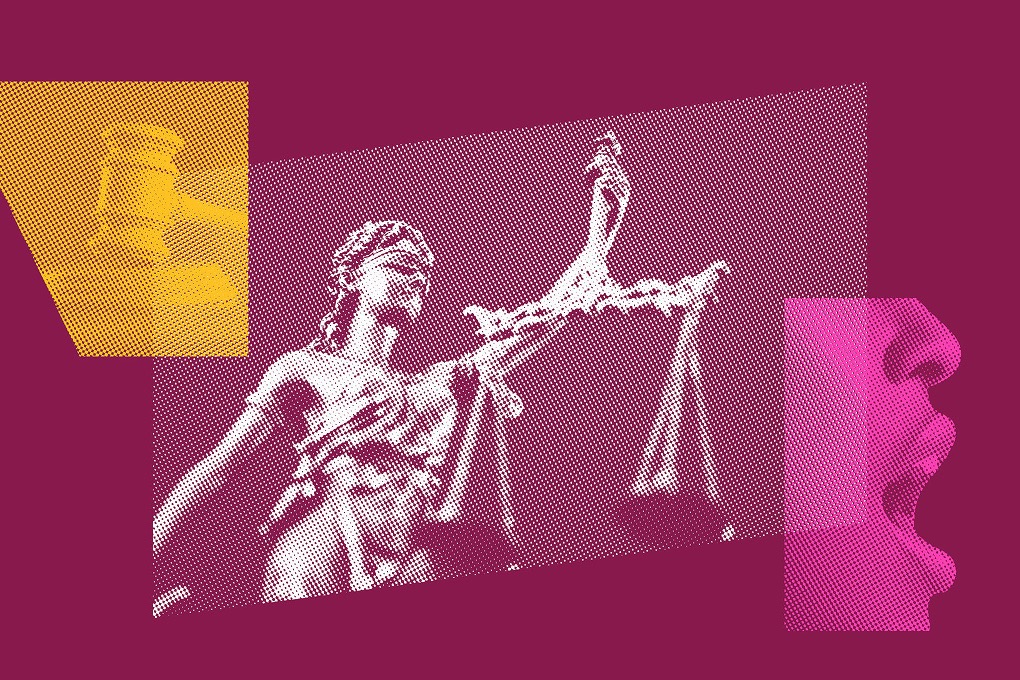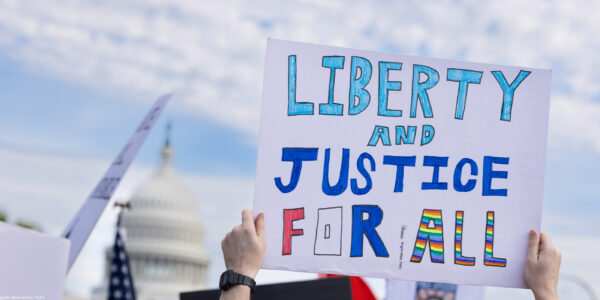
The police department of what major city was sued this week by the ACLU for discriminatory suspicionless surveillance practices?
Which state announced a decision to end its contract with private prison company CCA to run the state's largest prison?
Which law allows the government extraordinary surveillance powers to sweep up American's calls and emails on a massive scale?
Image databases of what form of ID could potentially be used by the police in combination with face recognition technology for suspicionless mass surveillance?
How many young immigrants have been granted Deferred Action for Childhood Arrivals, as of this May?
My Life Under NYPD Surveillance: A Brooklyn Student and Charity Leader on Fear and Mistrust
The ACLU, together with the NYCLU and CUNY's CLEAR Project, filed a lawsuit on Tuesday challenging the New York Police Department's unconstitutional policy and practice of targeting entire Muslim communities for discriminatory and suspicionless surveillance. The NYPD's vast religious profiling program has cast an unjustified badge of suspicion and stigma on hundreds of thousands of innocent New Yorkers, based on nothing more than their religious faith and practice. The ACLU and co-counsel represent civic and religious leaders, two mosques, and a charitable organization, all of whom were swept up in the police department's dragnet surveillance because they are Muslim. Plaintiff Asad Dandia writes about his experience as a target of unfair NYPD surveillance practices.
Corrections Corporation of America Loses Four Prison Contracts This Month
On Wednesday, news broke that Idaho is dumping the Corrections Corporation of America (CCA) and searching for a new company to run the state's biggest prison. The prison is so violent that prisoners call it the "Gladiator School," and it has been the subject of both an ACLU lawsuit and an Idaho State Police investigation. And earlier this year, CCA admitted that its employees had falsified nearly 4,800 hours of staffing records at the prison over a seven-month period, billing the state for security posts that they actually left unfilled.
Under the FISA Amendments Act, Your Calls and Emails Can't Be "Targeted," But They Can Certainly Be Collected
In recent days, government officials have lined up to assuage Americans' fears about the government's extraordinary surveillance powers under the FISA Amendments Act (FAA) by assuring them that—as President Obama himself told Charlie Rose on Monday night—the statute "does not apply to any U.S. person." But while perhaps an argument can be made that the statute does not "apply" to U.S. persons directly, it still vacuums up their international communications on a massive scale. Indeed, that is exactly what it was designed to do.
Some Thoughts on DMV Image Databases and the Police
The Washington Post has an excellent, in-depth article this on the growing use of driver's license photo databases combined with face recognition analytics by police.
We have never criticized the technology's use, for example, in helping the police match a suspect photo against a book of mug shots of previous convicts. If there is a strong criminal predicate, that is one thing, but we mustn't allow these databases to become fuel for petty status and identity checks—and certainly not used to enable mass suspicionless surveillance and tracking.
Standing with DREAMers – from Driver's Licenses to Immigration Reform
One year ago, the immigrant youth movement won the most important immigrants' rights victory in recent memory: the federal Deferred Action for Childhood Arrivals (DACA) program, which grants young immigrants who came to the U.S. as children—known as DREAMers—the ability to live and work in the country legally. As of this May, about 365,000 young immigrants have been granted DACA, and are working hard, going to school, and giving back to their communities—a preview of the benefits all of us stand to gain should Congress pass immigration reform this year.
Learn more about your civil liberties: Sign up for breaking news alerts, follow us on Twitter, and like us on Facebook.



